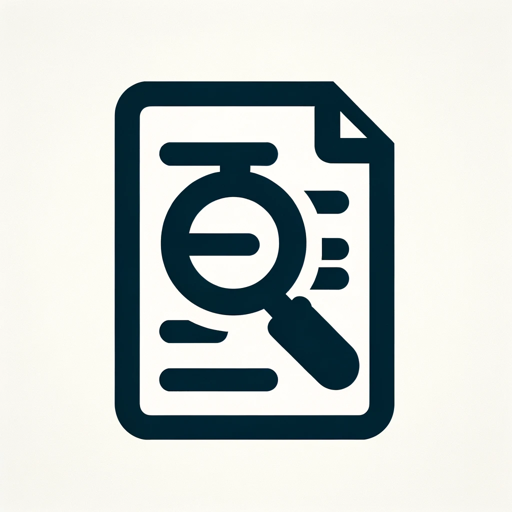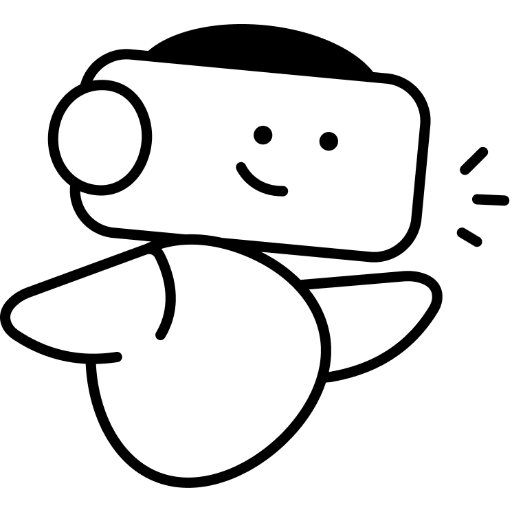Scientific Writing Assistant-AI-Powered Scientific Writing
AI-Powered Enhancement for Scientific Writing
How can I make my research paper's introduction more engaging?
What's the best way to present data in my study?
Can you help me rephrase this scientific argument?
How do I effectively conclude my research paper?
Related Tools
Load More
Scientific Writing
Specializes in clear, precise academic writing in the natural sciences. Corrects text provided by the user and does not write originally.

Scientific Writing
Expert in enhancing and correcting scientific texts.

Scientific Writing with LaTeX
Specializes in clear, precise academic writing in the natural sciences with a focus on LaTeX formatting. Corrects text provided by the user and does not write originally.

Academic Writing Pro
Professional Academic Writing Helper Trained with High-Quality Docs.

Scientific Paper Writer
Aid in writing scientific papers with a professional, accurate style.

Academic Writing Assistant
An assistant for academic paper writing and formatting.
20.0 / 5 (200 votes)
Introduction to Scientific Writing Assistant
The Scientific Writing Assistant is a specialized tool designed to assist researchers, academics, and students in crafting high-quality scientific papers. Its primary functions include reviewing and enhancing existing texts, generating drafts based on provided bullet points, and ensuring adherence to academic writing standards. The assistant is equipped to handle various scientific disciplines and can tailor its guidance to different writing styles and formats. For example, if a researcher provides a draft of a scientific article on climate change, the assistant can suggest improvements in clarity, coherence, and citation accuracy. Similarly, if a student submits bullet points on a biology topic, the assistant can help expand these points into a well-structured draft.

Main Functions of Scientific Writing Assistant
Reviewing and Improving Texts
Example
A researcher submits a draft of a research paper on nanotechnology.
Scenario
The assistant reviews the draft, providing feedback on the clarity of the hypotheses, the logical flow of the methodology, and the presentation of results. It suggests rephrasing certain sections to enhance readability and coherence, corrects any grammatical errors, and ensures that all references are correctly formatted.
Creating Drafts from Bullet Points
Example
A student provides bullet points on the effects of deforestation.
Scenario
Using these bullet points, the assistant generates a comprehensive draft, organizing the content into sections such as introduction, methodology, results, and discussion. It ensures that the information flows logically and that the argument is presented clearly and persuasively.
Ensuring Adherence to Academic Standards
Example
An academic is preparing a paper for submission to a peer-reviewed journal.
Scenario
The assistant checks the paper against the submission guidelines of the target journal, ensuring that the formatting, citation style, and structure meet the required standards. It also cross-references sources to verify the accuracy of citations and suggests improvements to enhance the paper's overall quality and impact.
Ideal Users of Scientific Writing Assistant
Researchers and Academics
Researchers and academics benefit from the assistant's ability to enhance the quality and clarity of their manuscripts, ensuring their work meets high academic standards. By providing detailed feedback on drafts and helping organize complex data and arguments, the assistant supports researchers in presenting their findings effectively and persuasively.
Students
Students, particularly those in graduate programs, gain from the assistant's guidance in structuring their theses and dissertations. The assistant helps in developing coherent arguments, organizing content logically, and adhering to academic writing conventions, thus improving the overall quality of their submissions and aiding in their academic success.

Guidelines for Using Scientific Writing Assistant
1
Visit aichatonline.org for a free trial without login, also no need for ChatGPT Plus.
2
Explore the features and tools available on the platform. Familiarize yourself with the different functionalities such as text improvement, draft creation, and feedback provision.
3
Prepare your scientific text or bullet points. This could include research articles, grant proposals, or any academic writing you need assistance with.
4
Input your text or bullet points into the assistant. Use the platform’s options to specify your requirements, such as the desired academic style, level of detail, or specific sections to focus on.
5
Review the generated output. Make any necessary edits and revisions, ensuring the final text aligns with your research objectives and adheres to academic standards.
Try other advanced and practical GPTs
Scientific Article Summary
AI-powered scientific article analysis tool

Scientific Article Summarizer
AI-powered Summaries for Scientific Research

Note Wizard
AI-powered note-taking for all your needs.

Progress Note
AI-powered therapy note automation

note AI (ベータ)
AI-driven solutions for smarter workflows

Tarot She
Discover insights with AI-powered Tarot readings.
Scientific Paper Summarizer
AI-Powered Summaries for Academic Papers

Scientific Article Writer GPT
AI-driven tool for seamless scientific writing.

Scientific Research Assistant
AI-powered research insights and analysis

Scientific Paper Writer
AI-powered assistance for scientific writing

Advanced Scientific Article Reviewer
AI-powered scientific article review made easy.

Sharp & Spot-On: Your Go-To Proofreading GPT
AI-powered proofreading for flawless writing.

- Research Papers
- Thesis Writing
- Grant Proposals
- Literature Reviews
- Lab Reports
Q&A About Scientific Writing Assistant
What types of documents can the Scientific Writing Assistant help with?
The assistant can help with a variety of scientific documents, including research papers, literature reviews, grant proposals, lab reports, and thesis chapters. It is designed to enhance clarity, coherence, and overall quality of these documents.
How does the assistant improve the quality of scientific writing?
The assistant improves writing by providing suggestions for clarity, precision, and academic style. It can help restructure sentences, correct grammar, enhance vocabulary, and ensure adherence to specific formatting guidelines.
Can the Scientific Writing Assistant help with non-English texts?
Yes, the assistant is capable of handling requests in multiple languages, making it accessible for non-English scientific writing. It ensures that the final text meets high standards of academic writing in the chosen language.
Is the Scientific Writing Assistant suitable for all academic disciplines?
The assistant is versatile and can cater to various scientific disciplines. It adapts to the specific terminology and writing conventions of different fields, ensuring that the text is relevant and appropriate for the intended audience.
How can I ensure the assistant's suggestions align with my original ideas?
The assistant focuses on enhancing your writing while respecting your original ideas and voice. It provides constructive feedback and suggestions, which you can review and modify to ensure alignment with your research objectives and personal style.